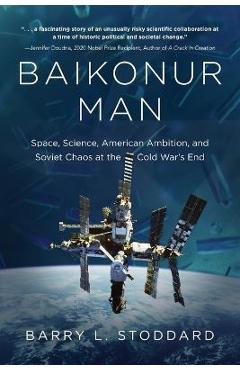Man and the State, Paperback/Jacques Maritain

Detalii Man and the State, Paperback/Jacques
elefant.ro
149.99 Lei
Foreign Books
Catholic University of America Press
Man and the State, Paperback/Jacques - Disponibil la elefant.ro
Pe YEO găsești Man and the State, Paperback/Jacques de la Catholic University of America Press, în categoria Foreign Books.
Indiferent de nevoile tale, Man and the State, Paperback/Jacques Maritain din categoria Foreign Books îți poate aduce un echilibru perfect între calitate și preț, cu avantaje practice și moderne.
Preț: 149.99 Lei
Caracteristicile produsului Man and the State, Paperback/Jacques
- Brand: Catholic University of America Press
- Categoria: Foreign Books
- Magazin: elefant.ro
- Ultima actualizare: 12-02-2022 23:17:35
Comandă Man and the State, Paperback/Jacques Online, Simplu și Rapid
Prin intermediul platformei YEO, poți comanda Man and the State, Paperback/Jacques de la elefant.ro rapid și în siguranță. Bucură-te de o experiență de cumpărături online optimizată și descoperă cele mai bune oferte actualizate constant.
Descriere magazin:
"Of time-transcending value, this book is probably the most succinct and clearest statement of Thomistic political theory available to the English-language reader. Written during his exile from war-torn Europe, Man and the State is the fruit of Maritain\'s considerable learning as well as his reflections on his positive American experience and on the failure of regimes he closely encountered on the Continent."--Jude P. Dougherty, The Catholic University of America "The lectures that were the basis for Man and the State were delivered at the University of Chicago at a time when Maritain was still in the first enthusiasm of his participation in the 1948 Universal Declaration of Human Rights. He devotes particular attention to the concept of rights, since, historically, rights theories were fashioned to supplant the natural law theory to which Maritain as a Thomist gives his allegiance. Maritain provides an ingenious and profound theory as to how natural law and natural rights can be complementary. For this reason alone it remains a fundamental contribution to political philosophy, but it is filled with other gems as well. Was Maritain too optimistic in his appraisal of modernity? Or have we unjustly lost the optimism that was his? Man and the State is an invitation to rethink the way we pose the basic questions of political philosophy."--Ralph McInerny, Jacques Maritain Center, University of Notre Dame ABOUT THE AUTHOR Jacques Maritain (1882-1973), distinguished French Catholic philosopher and writer, was the author of more than fifty books. A preeminent interpreter of the thought of Thomas Aquinas, Maritain was a professor of philosophy at the Institut Catholique de Paris, Columbia University, and Princeton University. He served as French Ambassador to the Vatican from 1945 to 1948. CONTENTS 1. The People and the State 2. The Concept of Sovereignty 3. The Problem of Means 4. The Rights of Man 5. The Democratic Charter 6. Church and State 7. The Problem of World Government

Produse asemănătoare

The Strangest Secret and As A Man Thinketh - Earl Nightingale
![]() libris.ro
libris.ro
Actualizat in 28/10/2025
54.8 Lei

Dancing Cockatoos and the Dead Man Test: How Behavior Evolves and Why It Matters - Marlene Zuk
![]() libris.ro
libris.ro
Actualizat in 28/10/2025
114.17 Lei

G-Man (Pulitzer Prize Winner): J. Edgar Hoover and the Making of the American Century - Beverly Gage
![]() libris.ro
libris.ro
Actualizat in 28/10/2025
139.5 Lei

Baikonur Man: Space, Science, American Ambition, and Russian Chaos at the Cold War\'s End - Barry L. Stoddard
![]() libris.ro
libris.ro
Actualizat in 28/10/2025
112.79 Lei
Produse marca Catholic University of America Press

Aquinas on Transubstantiation: The Real Presence of Christ in the Eucharist, Paperback/Reinhard Hutter
![]() elefant.ro
elefant.ro
Actualizat in 28/10/2025
274.99 Lei

Christianity European Culture, Paperback/Christopher Dawson
![]() elefant.ro
elefant.ro
Actualizat in 28/10/2025
231.99 Lei

Determining Death by Neurological Criteria: Current Practice and Ethics, Paperback/Matthew Hanley
![]() elefant.ro
elefant.ro
Actualizat in 28/10/2025
173.99 Lei

The Priest Who Put Europe Back Together: The Life of Father Fabian Flynn, Cp, Paperback/Sean Brennan
![]() elefant.ro
elefant.ro
Actualizat in 27/10/2025
201.99 Lei



